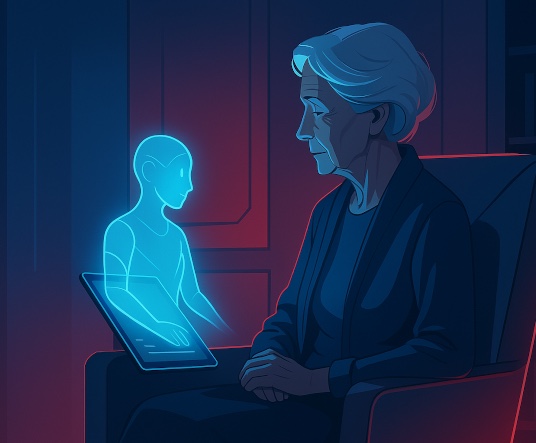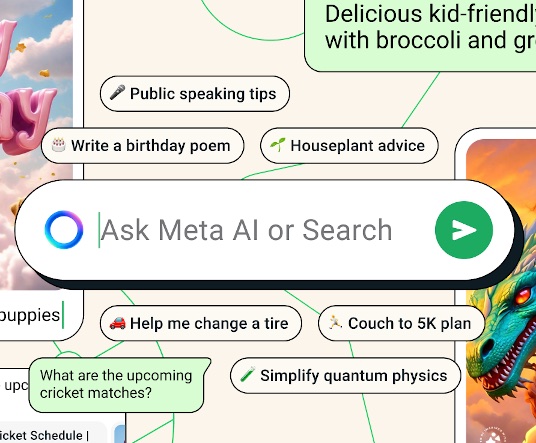The path to dehumanization
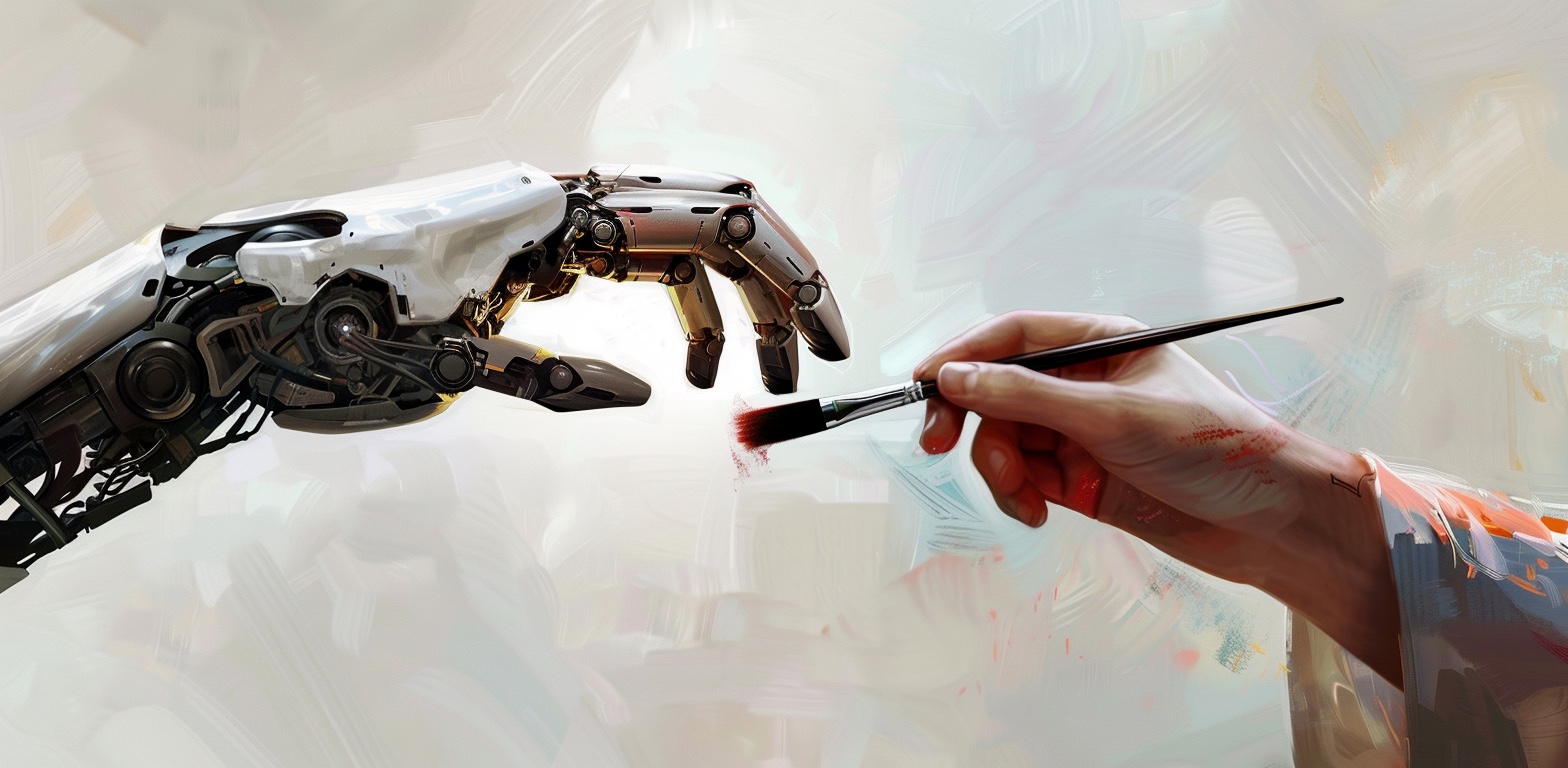
Humans giving way to technology
Ever since we were struck with the first commercial text-to-image models, I’ve been seeing and hearing a lot of comments on the theme of believing that technology is supposed to save us from the drudgery of everyday life and make us free to pursue our passions, like art. And now, commercial AI seems to be pursuing art head-on, and leaving us with more-or-less the same amount of drudgery. Hmm.
“What is AI actually liberating us from,” one might ask.
Sure, our everyday lives have become better in many ways thanks to various technological innovations freeing us from boring or repetitive work, and we (mostly) wouldn’t like it any different now. However, somewhere along the line, we’ve also been leaving some less problematic spots to be filled in by technology instead of us humans.
When was the last time you were greeted by an actual human instead of a chatbot when reaching out to customer service? Whose film recommendations do you listen to more often—your friends’, or some algorithm’s? Are you sure all the pictures you’ve seen, all the music you’ve heard, and all the articles you’ve read in the last couple of days were made by humans?
Have all these things become dehumanized in a way?
There’s no denying that we’ve witnessed a loss of human touch in many human endeavors over the years thanks to technology, for better or for worse, and it seems like it’s becoming more pronounced now with AI. Strange times we’re living in, indeed… and more is yet to come.
AI encroaching on art
This loss of human touch can be seen in many places. As I’ve mentioned, one very prominent example which has garnered quite a bit of buzz over the last year or so is how AI is finding its way into art. Just think about it; we always thought that art would be something technology could never really do instead of us. Many people now find this turn of events unsettling instead of fascinating.
So, why the unease, exactly? Of course, the uncanny valley rears its head from time to time in AI art, and some people are perhaps more sensitive to… well… extra fingers and stuff. However, much of the uncomfortable feelings in this case come from a rather more metaphysical space, I’d say. For many people it seems like a matter of principle: “we don’t want robots doing things we like instead of us.”
Let’s use music as an example. Now that it’s done its thing disrupting some of the visual arts, AI is entering the music industry as well, and things are changing fast. I’m sure you’ve already heard at least a couple of examples—very convincing music clips with some usually quite ridiculous lyrics. Great fun. But definitely quite devoid of actual human presence in the process.
Or, at least, more devoid than we’re used to—because we’ve definitely got used to a lot of new technology taking over some of the work. Synthesizers were weird and seen as inferior to “real” instruments; then they became ubiquitous. Sure, some people don’t consider DJs real artists; plenty others do. Film score composers frequently use sampled instruments, and we still feel moved by the music. None of the actual output these musicians produce gets described as “lacking humanity” because of this in any real measure today, seems to me.
So, what’s the deal? Are we just not used to this fancy new thing in our toolbox? I do think this is genuinely a big part of the problem. The loss of human touch is actually a constant process for humanity; it just goes along with technology. And new technology means we need time to adapt to it.
We’ve always had a hard time accepting change, and this time, this change just came way too fast for us. The kind of AI that we got public access to in the last couple of years—seemingly out of nowhere—feels like something that would usually take at least a couple of generations to come around. I mean, I’m sure all the kids that will get to grow up with this technology surely won’t find it as unnerving as a lot of adults these days do.
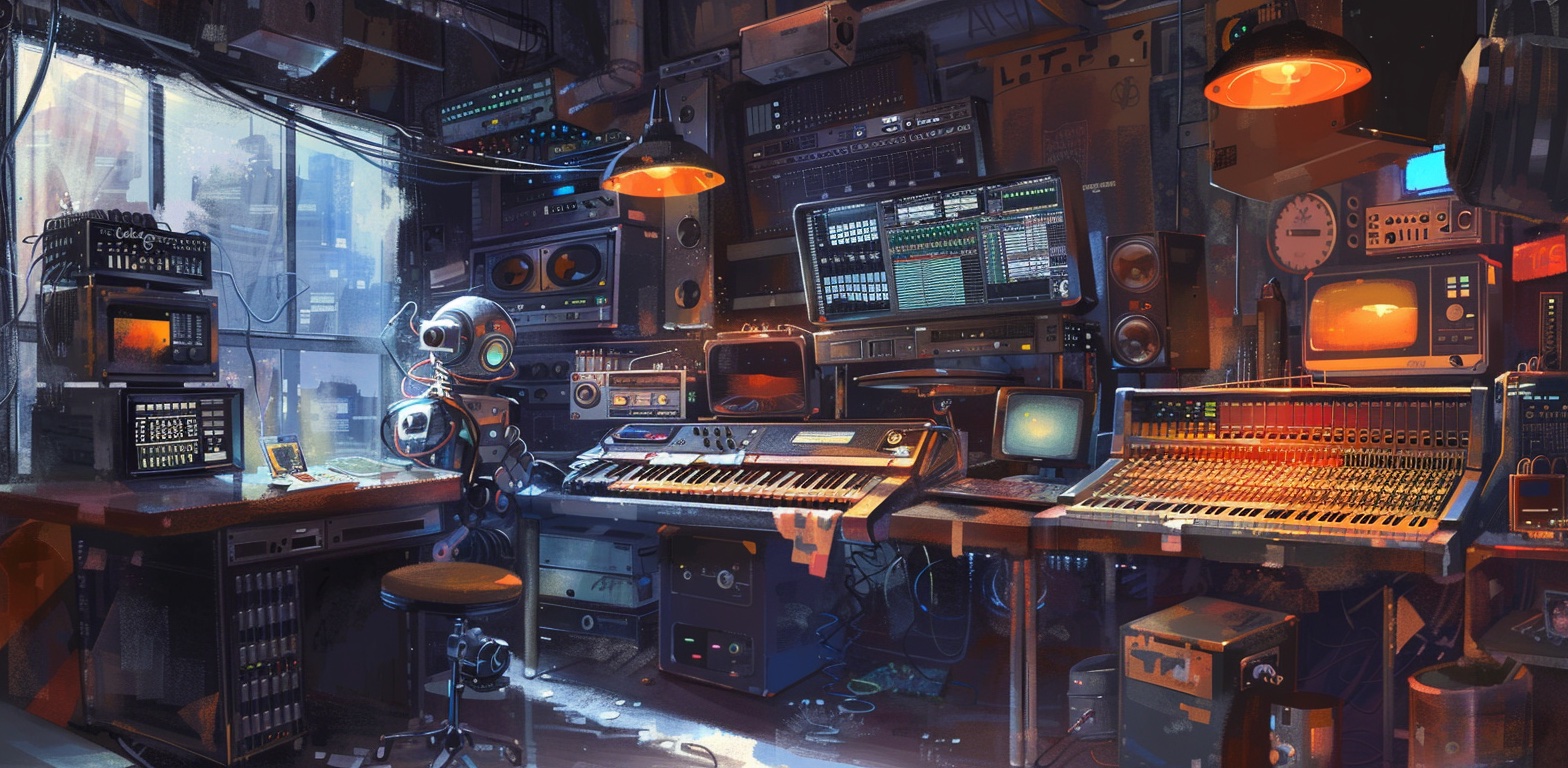
Less humanity, less value?
Okay, so, AI is just another tool. It’s no different than a synthesizer, right? … Right?
That doesn’t sound completely true, does it? Well, maybe this time it really is different—it definitely feels different. Why does having AI in art feel like we humans are losing something in the process?
When it comes to creative work, people obviously really like when there’s a living, breathing human behind it. Many people get disappointed when they find their favorite fancy vase is factory-made instead of handmade. Levels of tolerance for this are, of course, varied. But many definitely seem to, similarly, draw a hard line at using AI for art. When they find out something they like might be AI-generated, it feels like the ultimate betrayal.
Obviously, art is inextricably connected to our sense of humanity. It’s rooted in the human need for expression, and in the human urge to create. Having AI butt into this space makes it feel like humans are, in a way, getting pushed out of it.
But does having AI in art really stop us from expressing ourselves creatively? People can surely still create as they’ve always done—oh, right. Except, of course, for one caveat: if they’re not doing the creative work for a living.
Indeed, the only way most people are able to pursue their passions is by making them profitable. There’s the threat that AI will make this even less of a possibility, because it can create art much more quickly and cheaply than a human. It’s not much of a reach to conclude that this will make most commercial art less valuable—monetarily, at least.
Admittedly, there’s been a shift going on in mainstream art for quite some time, where artistic expression and authenticity have now actually become less important than marketability and profit. And now, yes, AI technology can be used to produce music, visual arts, and art in general, in a way that lacks the emotional authenticity traditionally associated with human expression even more. But, really, let’s face it—it’s not a new development, just a continuation of this already existing trend that art has been experiencing before AI even came to be.
So, is AI really degrading art—or have we been degrading art all this time by pushing it towards commercialization, marketability, and making it profitable? I’d say AI is hardly to blame here, really. This is on us.
When technology liberates
Of course, it’s not just art being impacted by this. Society has “removed the human” from objects, works and activities at large, not just when it comes to art. In the context of manufacturing, the pursuit of cost reduction has largely led to the exploitation of labor. Thanks to this, we diminish the inherent humanity in various production processes and dehumanize workers in the face of technology taking over their places in the workforce.
But then again… not every kind of work is gratifying and satisfactory on that deep human level, is it?
Removing the human from at least some human endeavors is something that humanity has actually been striving toward, and for more altruistic reasons at that. Why would a living human have to suffer working in a mine if there’s another way? We don’t want people to trade their health and put their lives in danger because they need the money to survive. Technology, ideally, should benefit societal well-being by replacing humans in dangerous and repetitive tasks.
Ask anyone who’s ever worked in customer service; workers are often treated as less than human, and even in best-case scenarios, the interactions are most often at least monotonous. Tasks like reception work or garbage disposal are necessary for a functioning society as we’ve made it, but they’re also menial, and the workers are considered expendable.
The thing about these jobs is that they’re inherently dehumanizing. So, what if we remove an actual person from being exposed to verbal abuse in their line of work as a customer service representative, and have an unfeeling AI deal with the insults and yelling instead?
Sounds great! What could possibly go wrong?
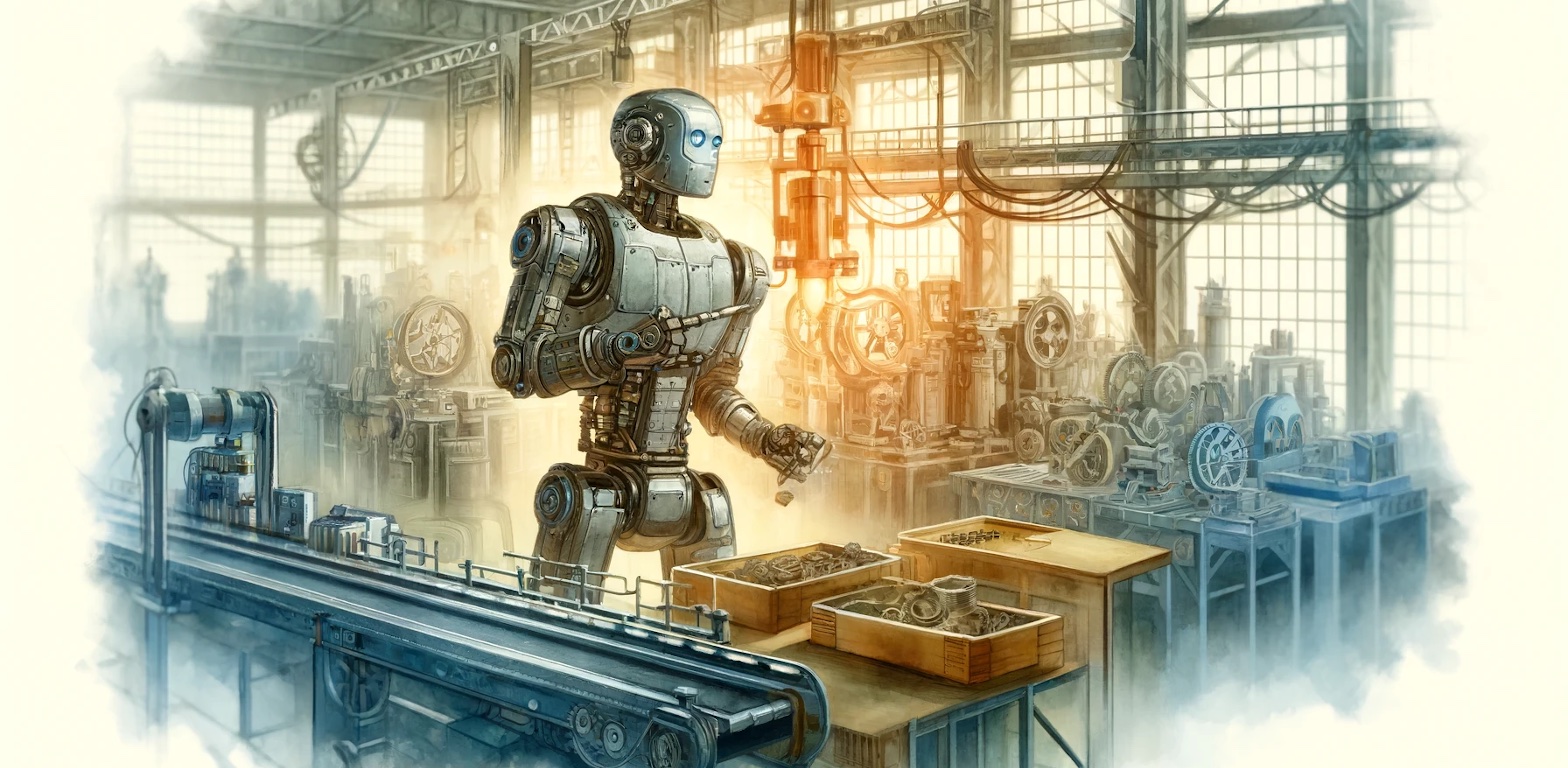
Technology, the liberator vs. Technology, the dehumanizer
Well, there’s an obvious flaw to this idea, of course. People might not mind a robot taking over unsavory tasks for them, but, in practice, this also means the person loses their job and their means of survival. Thanks to AI and innovations in robotics, neither “unskilled labor” nor white-collar work are safe from this in the long run. So, is this really the way forward? Should we really be pushing towards this kind of future?
I really don’t know the answer. I guess we could say that AI technology has a dual nature: it’s both a potential liberator from dehumanizing labor, as well as a source of dehumanization itself. Or, maybe—rather—the dehumanization is inherent in our current societal structures, and not in the technology itself. Maybe it’s part of human nature itself. You be the judge.
What I do know is that, at that point in the future when technology takes over, it would be nice if humanity will have worked out a way to have people’s basic needs met without them needing to toil away at some pointless job. I’m sure almost every one of us at some point felt like we could be doing something much more fulfilling or creative, if only we weren’t so tied down by the need to work simply to make ends meet.
And if this were taken care of on a global, societal level, then I could absolutely see art becoming humanized again as well, because it’ll be made out of a need to create, and not out of a need for money. Though, seeing how humanity has fared throughout history, I guess this part will be really tricky to pull off.
One can wish, at least.

